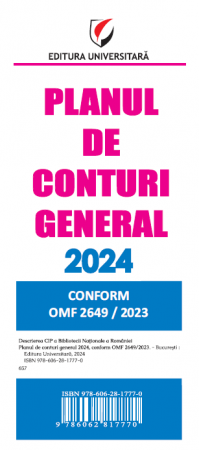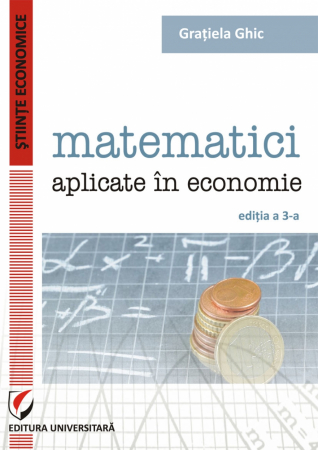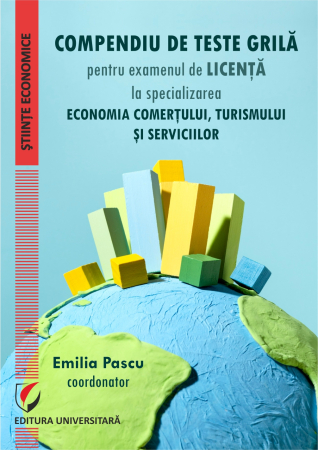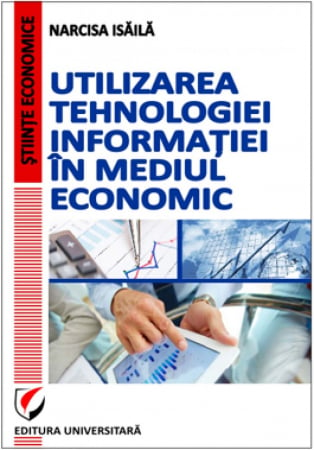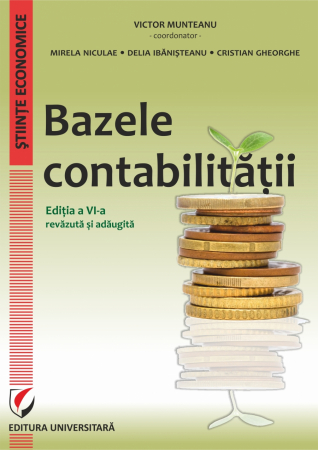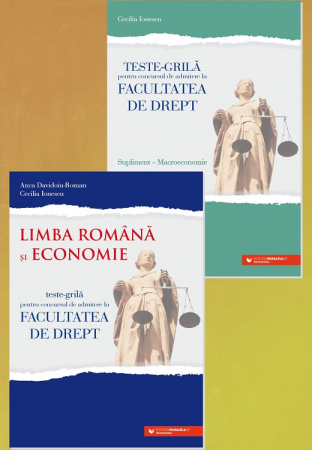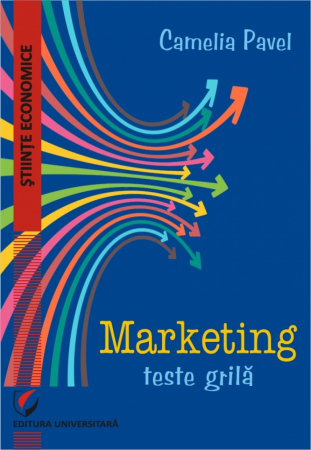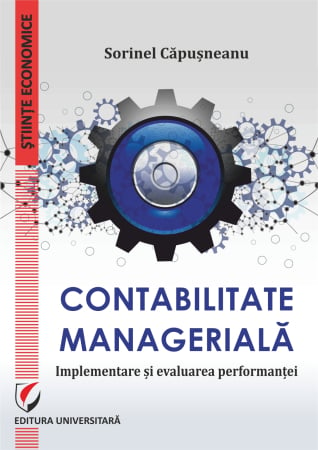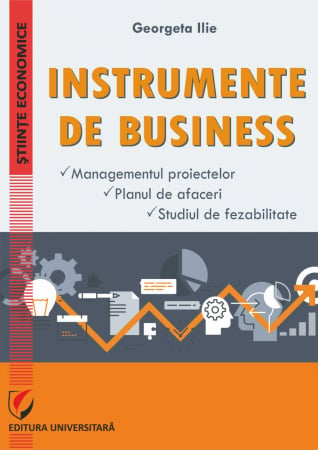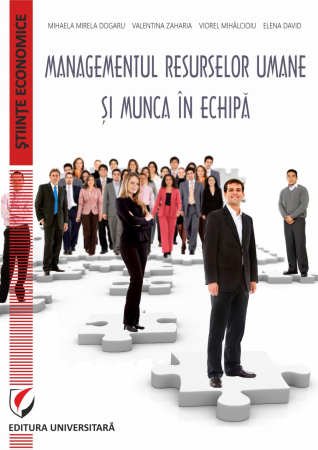Manuscript proposals: [email protected] / 0745 204 115 //// Tracking orders Individuals / Sales: 0745 200 357 / Orders Legal entities: 0721 722 783
Publisher: Editura Universitară
Author: Armenia Androniceanu
Edition: I
Pages: 238
ISBN: 978-606-28-1510-3
DOI: 10.5682/9786062815103
Publisher year: 2022
Product Code:
9786062815103
Do you need help?
0745 200 357
- Description
- Download (1)
- Authors
- Content
- More details
- Reviews (0)
Management of international organizations is the first specialized work in the Romanian language, which addresses the specific issue of the management of interstate and intergovernmental organizations from a holistic perspective.
In an international context strongly dominated by international organizations, deepening knowledge about them becomes essential. Through the policies and strategies initiated at the international level, but also through the decisions that the leaders of international organizations take, not only the policies and strategies of the world's states are influenced, but also the relations between them.
The international environment is more and more dominated by complex problems, among which: the increase in the share of the poor population, the accentuation of military tensions and even conflicts between the states of the world, the deterioration of natural balances and environmental problems, increasing illiteracy, the increase in the frequency of crisis phenomena economic, especially energetic and social, the deterioration of the health of the planet's population, etc. Most of these cannot be solved by the states where they manifest themselves more prominently, firstly because they involve important financial investments, which most of them do not have, and secondly because they require qualified human resources, resources adequate finances and firm political will.
Globalization, whose influences are increasingly strong worldwide, has led states to analyze what is best for them. Most of them came to the conclusion that good relations with international organizations or even affiliation with different international organizations, as well as the active role within them, are essential to be able to make better use of the international context with economic, social, political and security that accelerates or slows down the evolution of the states of the world.
Neglected or unresolved problems in underdeveloped and developing countries determine, sooner or later, the deterioration of the economic and social balance of developed states. This explains the increased dynamics of the number of international organizations. The states of the world understood an essential truth, the fact that together they are stronger in their confrontation with regional and world problems.
From this perspective, the work Management of international organizations helps the reader to understand the fact that many of the international organizations were established and continue to develop precisely because the member states have a common interest for their work to happen. Most of them consider that, united in a distinct international entity, they are stronger and can act effectively, firstly to solve their own problems or to ensure their development, and secondly, they can better influence international economic and political affairs , social and security.
The work includes four distinct chapters, which through their content help the reader to understand not only who international organizations are and why they are needed in the current international environment, but also gives him the opportunity to know their mission, objectives and principles, organization and decision-making process, the way in which Romania relates to them and the main benefits obtained over time.
Out of the more than 50,000 international organizations, in the work Management of international organizations, nine international organizations are presented with a particular relevance on the international level, but also on the relationship with Romania.
The work Management of international organizations is addressed both to readers who want to know the main international organizations, but also to all master's and doctoral students who are preparing to develop a career in these organizations, or to those who actually collaborate, by the nature of their work, with various international organizations .
The work is of particular interest for Romania's specialized personnel in the field of international affairs, who must know the particularities of the management of international organizations and how to adapt Romania's strategies and tactics to the relationship with them, in order to generate positive economic, social, cultural, political effects and security.
From this perspective, the work Management of international organizations contributes significantly, not only to the development of knowledge, but also to the modeling of the thinking and behavior of human resources involved in different activities, to the relationship with international organizations and to the development of the skills of diplomatic staff to identify strategic and tactical changes useful to Romania, in relation to these.
Romania needs professionals in the management of international public affairs, able to develop viable and sustainable partnerships with international organizations, and the work Management of international organizations offers real support for this purpose.
University professor Dr. Armenia Androniceanu
Bucharest, 2022
In an international context strongly dominated by international organizations, deepening knowledge about them becomes essential. Through the policies and strategies initiated at the international level, but also through the decisions that the leaders of international organizations take, not only the policies and strategies of the world's states are influenced, but also the relations between them.
The international environment is more and more dominated by complex problems, among which: the increase in the share of the poor population, the accentuation of military tensions and even conflicts between the states of the world, the deterioration of natural balances and environmental problems, increasing illiteracy, the increase in the frequency of crisis phenomena economic, especially energetic and social, the deterioration of the health of the planet's population, etc. Most of these cannot be solved by the states where they manifest themselves more prominently, firstly because they involve important financial investments, which most of them do not have, and secondly because they require qualified human resources, resources adequate finances and firm political will.
Globalization, whose influences are increasingly strong worldwide, has led states to analyze what is best for them. Most of them came to the conclusion that good relations with international organizations or even affiliation with different international organizations, as well as the active role within them, are essential to be able to make better use of the international context with economic, social, political and security that accelerates or slows down the evolution of the states of the world.
Neglected or unresolved problems in underdeveloped and developing countries determine, sooner or later, the deterioration of the economic and social balance of developed states. This explains the increased dynamics of the number of international organizations. The states of the world understood an essential truth, the fact that together they are stronger in their confrontation with regional and world problems.
From this perspective, the work Management of international organizations helps the reader to understand the fact that many of the international organizations were established and continue to develop precisely because the member states have a common interest for their work to happen. Most of them consider that, united in a distinct international entity, they are stronger and can act effectively, firstly to solve their own problems or to ensure their development, and secondly, they can better influence international economic and political affairs , social and security.
The work includes four distinct chapters, which through their content help the reader to understand not only who international organizations are and why they are needed in the current international environment, but also gives him the opportunity to know their mission, objectives and principles, organization and decision-making process, the way in which Romania relates to them and the main benefits obtained over time.
Out of the more than 50,000 international organizations, in the work Management of international organizations, nine international organizations are presented with a particular relevance on the international level, but also on the relationship with Romania.
The work Management of international organizations is addressed both to readers who want to know the main international organizations, but also to all master's and doctoral students who are preparing to develop a career in these organizations, or to those who actually collaborate, by the nature of their work, with various international organizations .
The work is of particular interest for Romania's specialized personnel in the field of international affairs, who must know the particularities of the management of international organizations and how to adapt Romania's strategies and tactics to the relationship with them, in order to generate positive economic, social, cultural, political effects and security.
From this perspective, the work Management of international organizations contributes significantly, not only to the development of knowledge, but also to the modeling of the thinking and behavior of human resources involved in different activities, to the relationship with international organizations and to the development of the skills of diplomatic staff to identify strategic and tactical changes useful to Romania, in relation to these.
Romania needs professionals in the management of international public affairs, able to develop viable and sustainable partnerships with international organizations, and the work Management of international organizations offers real support for this purpose.
University professor Dr. Armenia Androniceanu
Bucharest, 2022
-
Management of international organizations
Download
RMENIA ANDRONICEANU
— University professor since 2004, Academy of Economic Studies in Bucharest, holder and coordinator of the following disciplines: Public Management; Management of international organizations; Management of organizational changes; Administrative systems compared from European Union states; Public service management in European Union states; Projects in the public sector;
— She taught the first Public Management course in Romania in the academic year 1995-1996 at the Management Faculty of the Academy of Economic Studies in Bucharest, and in 1999 he published the first book on Public Management in Romania, at the Economica Publishing House in Bucharest;
— Doctor in economics, specializing in organization management since 1997;
— Coordinator of doctoral studies, Doctoral School of Management, Academy of Economic Studies in Bucharest since 2007 and at Universita'degli Studia Di Messina, Faculta'di Economia, Italy since 2005;
— Coordinator and founder of the first Public Policy Unit within the Central Apparatus of the Government of Romania, the General Secretariat of the Government of Romania, where the basic legislative framework for public policies was developed and the first public policy development guide for the ministries of the Government of Romania was published;
— Director of Projects and Programs with the World Bank in the Chancellery of the Prime Minister of Romania;
— Senior Project Officer within the National Agency of Public Servants, coordinator of projects with European funding, through which the secondary legislation for Law 188/1999 - Statute of public servants was elaborated;
— Director and founder of the International Center for Public Management since 2008, within which numerous research and institutional projects with national and international funding were elaborated and implemented;
— Director, editor-in-chief and founder of the magazine "Public Administration and Management" since 2003;
— Project manager with CNFPA certification;
— Competence assessor in the field of human resources and projects, certified by CNFPA;
— Consultant in public and private sector business management;
— Specializations in the field of management and public administration in: Great Britain, Spain, Germany, Holland, Canada, Japan and others.
She has published over 30 books alone and in collaboration, over 150 articles in the country and abroad, over 170 scientific communications at national and international conferences in the field of economic and administrative sciences.
— University professor since 2004, Academy of Economic Studies in Bucharest, holder and coordinator of the following disciplines: Public Management; Management of international organizations; Management of organizational changes; Administrative systems compared from European Union states; Public service management in European Union states; Projects in the public sector;
— She taught the first Public Management course in Romania in the academic year 1995-1996 at the Management Faculty of the Academy of Economic Studies in Bucharest, and in 1999 he published the first book on Public Management in Romania, at the Economica Publishing House in Bucharest;
— Doctor in economics, specializing in organization management since 1997;
— Coordinator of doctoral studies, Doctoral School of Management, Academy of Economic Studies in Bucharest since 2007 and at Universita'degli Studia Di Messina, Faculta'di Economia, Italy since 2005;
— Coordinator and founder of the first Public Policy Unit within the Central Apparatus of the Government of Romania, the General Secretariat of the Government of Romania, where the basic legislative framework for public policies was developed and the first public policy development guide for the ministries of the Government of Romania was published;
— Director of Projects and Programs with the World Bank in the Chancellery of the Prime Minister of Romania;
— Senior Project Officer within the National Agency of Public Servants, coordinator of projects with European funding, through which the secondary legislation for Law 188/1999 - Statute of public servants was elaborated;
— Director and founder of the International Center for Public Management since 2008, within which numerous research and institutional projects with national and international funding were elaborated and implemented;
— Director, editor-in-chief and founder of the magazine "Public Administration and Management" since 2003;
— Project manager with CNFPA certification;
— Competence assessor in the field of human resources and projects, certified by CNFPA;
— Consultant in public and private sector business management;
— Specializations in the field of management and public administration in: Great Britain, Spain, Germany, Holland, Canada, Japan and others.
She has published over 30 books alone and in collaboration, over 150 articles in the country and abroad, over 170 scientific communications at national and international conferences in the field of economic and administrative sciences.
Preface / 9
Chapter 1
The international environment and its impact on international organizations / 11
1.1. The international environment, content and characteristics / 11
1.1.1. Defining the international environment / 12
1.1.2. The main characteristics of the international environment / 13
1.2. Globalization, content, evolution and impact / 14
1.2.1. Definition of globalization / 14
1.2.2. The determining factors and causes of globalization / 19
1.3. Globalization, content, dynamics and influences / 22
1.3.1. Globalization and its role in the international context / 22
1.3.2. Acceptances regarding globalization /23
1.3.3. Stages of the globalization process / 24
1.3.4. The advantages and limits of globalization / 25
1.3.5. The influence of globalization on the states of the world / 29
1.3.6. The effects of globalization on Romania / 31
Chapter 2
Basic concepts and approaches in the management of international organizations / 34
2.1. Management of international organizations, context and evolution / 34
2.2. The content of the management of international organizations / 38
2.3. Principles and fundamental values of the management of international organizations / 39
2.4. Management objectives of international organizations / 43
2.5. The characteristics of the management of international organizations / 44
2.6. Leadership mechanisms in the management of international organizations / 48
2.7. Management models specific to international organizations / 52
2.7.1. The classical model or the political-administrative model / 53
2.7.2. The functional model of international cooperation / 54
2.7.3. The governance model depending on the international environment / 54
2.7.4. Participatory governance model / 55
2.7.5. The flexible governance model / 56
Chapter 3
International organizations and world development / 57
3.1. International organizations: content, characteristics and requirements / 57
3.1.1. Defining the international organization / 57
3.1.2. The main characteristics of international organizations / 59
3.1.3. Requirements for the establishment of international organizations / 60
3.2. Types of international organizations and their classification systems / 62
3.2.1. Short history of international organizations / 62
3.2.2. Typology of international organizations / 63
3.3. The basic values of international organizations / 67
Chapter 4
Peculiarities of the management of representative international organizations, with a major role in the development of world states and their relations with Romania / 72
4.1. United Nations Organization / 72
4.1.1. Brief history of the establishment of the UN / 73
4.1.2. The purpose and objectives of the UN / 74
4.1.3. Fundamental Principles of the UN / 77
4.1.4. Organizational structure of the UN / 79
4.1.5. Decision-making and informational system of the UN / 84
4.1.6. Significant changes within the UN / 87
4.1.6.1. The general framework of the reforms / 87
4.1.6.2. Resource and business management within the UN / 93
4.1.7. The influence of the UN on public policies in Romania / 95
4.1.8. The impact of the UN on public management in Romania / 99
4.2. World Bank / 101
4.2.1. Brief history of the World Bank / 102
4.2.2. The mission and objectives of the World Bank / 106
4.2.3. Peculiarities of the World Bank's management / 106
4.2.3.1. Organizational structure of the World Bank / 107
4.2.3.2. The basic activities of the World Bank / 109
4.2.3.3. Human resources within the World Bank / 112
4.2.3.4. The way of making decisions within the management structure of the World Bank / 114
4.2.4. The impact of the World Bank on the development process of Romania / 115
4.3. International Monetary Fund / 117
4.3.1. Brief history of the International Monetary Fund / 118
4.3.2. The mission, purpose, objectives and main activities of the IMF / 120
4.3.3. The fundamental principles of the IMF / 122
4.3.4. Management structure of the IMF / 124
4.3.5. The activities and specific operational instruments of the IMF / 126
4.3.6. IMF relations with Romania / 131
4.4. North Atlantic Treaty Organization / 136
4.4.1. Brief history of NATO / 137
4.4.2. The mission, principles and objectives of NATO / 141
4.4.3. Peculiarities of NATO management / 144
4.4.3.1. Organizational structure of NATO / 145
4.4.3.2. The decision-making process within NATO / 151
4.4.3.3. Management of financial resources / 156
4.4.3.4. Management of documents and informational resources / 157
4.4.4. The evolution of relations between NATO and Romania / 158
4.5. World Health Organization / 161
4.5.1. Brief history of WHO / 162
4.5.2. The mission, purpose and objectives of the WHO / 164
4.5.3. The fundamental principles of WHO / 167
4.5.4. The basic functions of WHO / 168
4.5.5. Peculiarities of WHO management / 168
4.5.5.1. Organizational structure of WHO / 170
4.5.5.2. Resource management within WHO / 174
4.5.6. The collaboration of the World Health Organization with Romania / 176
4.6. Organization for Economic Cooperation and Development / 181
4.6.1. Brief history of the OECD / 181
4.6.2. The mission, purpose and objectives of the OECD / 182
4.6.3. OECD Fundamental Principles / 183
4.6.4. The organizational structure of the OECD / 186
4.6.5. OECD relations with Romania / 187
4.7. World Trade Organization / 190
4.7.1. Brief history of the WTO / 191
4.7.2. The mission, objectives and attributions of the WTO / 193
4.7.3. WTO Principles / 194
4.7.4. Organization within the WTO / 195
4.7.5. The decision-making process within the WTO / 197
4.7.6. Relations between the WTO and other international organizations / 199
4.7.7. WTO relations with Romania / 199
4.8. United Nations International Fund for Children's Emergencies / 201
4.8.1. Brief history of UNICEF / 201
4.8.2. The role and mission of UNICEF / 203
4.8.3. The purpose and objectives of UNICEF / 205
4.8.4. The main activities carried out by UNICEF / 209
4.8.5. Organization within UNICEF / 210
4.8.6. UNICEF in Romania / 212
4.9. United Nations Educational, Scientific and Cultural Organization / 220
4.9.1. Brief history of UNESCO / 221
4.9.2. The purpose and mission of UNESCO / 221
4.9.3. UNESCO's fields of activity / 222
4.9.4. Organizational structure of UNESCO / 226
4.9.5. UNESCO in Romania / 226
Bibliography / 231
Chapter 1
The international environment and its impact on international organizations / 11
1.1. The international environment, content and characteristics / 11
1.1.1. Defining the international environment / 12
1.1.2. The main characteristics of the international environment / 13
1.2. Globalization, content, evolution and impact / 14
1.2.1. Definition of globalization / 14
1.2.2. The determining factors and causes of globalization / 19
1.3. Globalization, content, dynamics and influences / 22
1.3.1. Globalization and its role in the international context / 22
1.3.2. Acceptances regarding globalization /23
1.3.3. Stages of the globalization process / 24
1.3.4. The advantages and limits of globalization / 25
1.3.5. The influence of globalization on the states of the world / 29
1.3.6. The effects of globalization on Romania / 31
Chapter 2
Basic concepts and approaches in the management of international organizations / 34
2.1. Management of international organizations, context and evolution / 34
2.2. The content of the management of international organizations / 38
2.3. Principles and fundamental values of the management of international organizations / 39
2.4. Management objectives of international organizations / 43
2.5. The characteristics of the management of international organizations / 44
2.6. Leadership mechanisms in the management of international organizations / 48
2.7. Management models specific to international organizations / 52
2.7.1. The classical model or the political-administrative model / 53
2.7.2. The functional model of international cooperation / 54
2.7.3. The governance model depending on the international environment / 54
2.7.4. Participatory governance model / 55
2.7.5. The flexible governance model / 56
Chapter 3
International organizations and world development / 57
3.1. International organizations: content, characteristics and requirements / 57
3.1.1. Defining the international organization / 57
3.1.2. The main characteristics of international organizations / 59
3.1.3. Requirements for the establishment of international organizations / 60
3.2. Types of international organizations and their classification systems / 62
3.2.1. Short history of international organizations / 62
3.2.2. Typology of international organizations / 63
3.3. The basic values of international organizations / 67
Chapter 4
Peculiarities of the management of representative international organizations, with a major role in the development of world states and their relations with Romania / 72
4.1. United Nations Organization / 72
4.1.1. Brief history of the establishment of the UN / 73
4.1.2. The purpose and objectives of the UN / 74
4.1.3. Fundamental Principles of the UN / 77
4.1.4. Organizational structure of the UN / 79
4.1.5. Decision-making and informational system of the UN / 84
4.1.6. Significant changes within the UN / 87
4.1.6.1. The general framework of the reforms / 87
4.1.6.2. Resource and business management within the UN / 93
4.1.7. The influence of the UN on public policies in Romania / 95
4.1.8. The impact of the UN on public management in Romania / 99
4.2. World Bank / 101
4.2.1. Brief history of the World Bank / 102
4.2.2. The mission and objectives of the World Bank / 106
4.2.3. Peculiarities of the World Bank's management / 106
4.2.3.1. Organizational structure of the World Bank / 107
4.2.3.2. The basic activities of the World Bank / 109
4.2.3.3. Human resources within the World Bank / 112
4.2.3.4. The way of making decisions within the management structure of the World Bank / 114
4.2.4. The impact of the World Bank on the development process of Romania / 115
4.3. International Monetary Fund / 117
4.3.1. Brief history of the International Monetary Fund / 118
4.3.2. The mission, purpose, objectives and main activities of the IMF / 120
4.3.3. The fundamental principles of the IMF / 122
4.3.4. Management structure of the IMF / 124
4.3.5. The activities and specific operational instruments of the IMF / 126
4.3.6. IMF relations with Romania / 131
4.4. North Atlantic Treaty Organization / 136
4.4.1. Brief history of NATO / 137
4.4.2. The mission, principles and objectives of NATO / 141
4.4.3. Peculiarities of NATO management / 144
4.4.3.1. Organizational structure of NATO / 145
4.4.3.2. The decision-making process within NATO / 151
4.4.3.3. Management of financial resources / 156
4.4.3.4. Management of documents and informational resources / 157
4.4.4. The evolution of relations between NATO and Romania / 158
4.5. World Health Organization / 161
4.5.1. Brief history of WHO / 162
4.5.2. The mission, purpose and objectives of the WHO / 164
4.5.3. The fundamental principles of WHO / 167
4.5.4. The basic functions of WHO / 168
4.5.5. Peculiarities of WHO management / 168
4.5.5.1. Organizational structure of WHO / 170
4.5.5.2. Resource management within WHO / 174
4.5.6. The collaboration of the World Health Organization with Romania / 176
4.6. Organization for Economic Cooperation and Development / 181
4.6.1. Brief history of the OECD / 181
4.6.2. The mission, purpose and objectives of the OECD / 182
4.6.3. OECD Fundamental Principles / 183
4.6.4. The organizational structure of the OECD / 186
4.6.5. OECD relations with Romania / 187
4.7. World Trade Organization / 190
4.7.1. Brief history of the WTO / 191
4.7.2. The mission, objectives and attributions of the WTO / 193
4.7.3. WTO Principles / 194
4.7.4. Organization within the WTO / 195
4.7.5. The decision-making process within the WTO / 197
4.7.6. Relations between the WTO and other international organizations / 199
4.7.7. WTO relations with Romania / 199
4.8. United Nations International Fund for Children's Emergencies / 201
4.8.1. Brief history of UNICEF / 201
4.8.2. The role and mission of UNICEF / 203
4.8.3. The purpose and objectives of UNICEF / 205
4.8.4. The main activities carried out by UNICEF / 209
4.8.5. Organization within UNICEF / 210
4.8.6. UNICEF in Romania / 212
4.9. United Nations Educational, Scientific and Cultural Organization / 220
4.9.1. Brief history of UNESCO / 221
4.9.2. The purpose and mission of UNESCO / 221
4.9.3. UNESCO's fields of activity / 222
4.9.4. Organizational structure of UNESCO / 226
4.9.5. UNESCO in Romania / 226
Bibliography / 231
Management of international organizations is the first specialized work in the Romanian language, which addresses the specific issue of the management of interstate and intergovernmental organizations from a holistic perspective.
In an international context strongly dominated by international organizations, deepening knowledge about them becomes essential. Through the policies and strategies initiated at the international level, but also through the decisions that the leaders of international organizations take, not only the policies and strategies of the world's states are influenced, but also the relations between them.
The international environment is more and more dominated by complex problems, among which: the increase in the share of the poor population, the accentuation of military tensions and even conflicts between the states of the world, the deterioration of natural balances and environmental problems, increasing illiteracy, the increase in the frequency of crisis phenomena economic, especially energetic and social, the deterioration of the health of the planet's population, etc. Most of these cannot be solved by the states where they manifest themselves more prominently, firstly because they involve important financial investments, which most of them do not have, and secondly because they require qualified human resources, resources adequate finances and firm political will.
Globalization, whose influences are increasingly strong worldwide, has led states to analyze what is best for them. Most of them came to the conclusion that good relations with international organizations or even affiliation with different international organizations, as well as the active role within them, are essential to be able to make better use of the international context with economic, social, political and security that accelerates or slows down the evolution of the states of the world.
Neglected or unresolved problems in underdeveloped and developing countries determine, sooner or later, the deterioration of the economic and social balance of developed states. This explains the increased dynamics of the number of international organizations. The states of the world understood an essential truth, the fact that together they are stronger in their confrontation with regional and world problems.
From this perspective, the work Management of international organizations helps the reader to understand the fact that many of the international organizations were established and continue to develop precisely because the member states have a common interest for their work to happen. Most of them consider that, united in a distinct international entity, they are stronger and can act effectively, firstly to solve their own problems or to ensure their development, and secondly, they can better influence international economic and political affairs , social and security.
The work includes four distinct chapters, which through their content help the reader to understand not only who international organizations are and why they are needed in the current international environment, but also gives him the opportunity to know their mission, objectives and principles, organization and decision-making process, the way in which Romania relates to them and the main benefits obtained over time.
Out of the more than 50,000 international organizations, in the work Management of international organizations, nine international organizations are presented with a particular relevance on the international level, but also on the relationship with Romania.
The work Management of international organizations is addressed both to readers who want to know the main international organizations, but also to all master's and doctoral students who are preparing to develop a career in these organizations, or to those who actually collaborate, by the nature of their work, with various international organizations .
The work is of particular interest for Romania's specialized personnel in the field of international affairs, who must know the particularities of the management of international organizations and how to adapt Romania's strategies and tactics to the relationship with them, in order to generate positive economic, social, cultural, political effects and security.
From this perspective, the work Management of international organizations contributes significantly, not only to the development of knowledge, but also to the modeling of the thinking and behavior of human resources involved in different activities, to the relationship with international organizations and to the development of the skills of diplomatic staff to identify strategic and tactical changes useful to Romania, in relation to these.
Romania needs professionals in the management of international public affairs, able to develop viable and sustainable partnerships with international organizations, and the work Management of international organizations offers real support for this purpose.
University professor Dr. Armenia Androniceanu
Bucharest, 2022
In an international context strongly dominated by international organizations, deepening knowledge about them becomes essential. Through the policies and strategies initiated at the international level, but also through the decisions that the leaders of international organizations take, not only the policies and strategies of the world's states are influenced, but also the relations between them.
The international environment is more and more dominated by complex problems, among which: the increase in the share of the poor population, the accentuation of military tensions and even conflicts between the states of the world, the deterioration of natural balances and environmental problems, increasing illiteracy, the increase in the frequency of crisis phenomena economic, especially energetic and social, the deterioration of the health of the planet's population, etc. Most of these cannot be solved by the states where they manifest themselves more prominently, firstly because they involve important financial investments, which most of them do not have, and secondly because they require qualified human resources, resources adequate finances and firm political will.
Globalization, whose influences are increasingly strong worldwide, has led states to analyze what is best for them. Most of them came to the conclusion that good relations with international organizations or even affiliation with different international organizations, as well as the active role within them, are essential to be able to make better use of the international context with economic, social, political and security that accelerates or slows down the evolution of the states of the world.
Neglected or unresolved problems in underdeveloped and developing countries determine, sooner or later, the deterioration of the economic and social balance of developed states. This explains the increased dynamics of the number of international organizations. The states of the world understood an essential truth, the fact that together they are stronger in their confrontation with regional and world problems.
From this perspective, the work Management of international organizations helps the reader to understand the fact that many of the international organizations were established and continue to develop precisely because the member states have a common interest for their work to happen. Most of them consider that, united in a distinct international entity, they are stronger and can act effectively, firstly to solve their own problems or to ensure their development, and secondly, they can better influence international economic and political affairs , social and security.
The work includes four distinct chapters, which through their content help the reader to understand not only who international organizations are and why they are needed in the current international environment, but also gives him the opportunity to know their mission, objectives and principles, organization and decision-making process, the way in which Romania relates to them and the main benefits obtained over time.
Out of the more than 50,000 international organizations, in the work Management of international organizations, nine international organizations are presented with a particular relevance on the international level, but also on the relationship with Romania.
The work Management of international organizations is addressed both to readers who want to know the main international organizations, but also to all master's and doctoral students who are preparing to develop a career in these organizations, or to those who actually collaborate, by the nature of their work, with various international organizations .
The work is of particular interest for Romania's specialized personnel in the field of international affairs, who must know the particularities of the management of international organizations and how to adapt Romania's strategies and tactics to the relationship with them, in order to generate positive economic, social, cultural, political effects and security.
From this perspective, the work Management of international organizations contributes significantly, not only to the development of knowledge, but also to the modeling of the thinking and behavior of human resources involved in different activities, to the relationship with international organizations and to the development of the skills of diplomatic staff to identify strategic and tactical changes useful to Romania, in relation to these.
Romania needs professionals in the management of international public affairs, able to develop viable and sustainable partnerships with international organizations, and the work Management of international organizations offers real support for this purpose.
University professor Dr. Armenia Androniceanu
Bucharest, 2022
If you want to express your opinion about this product you can add a review.
write a review

6359.png)
![Management of international organizations - Armenia Androniceanu [1] Management of international organizations - Armenia Androniceanu [1]](https://gomagcdn.ro/domains/editurauniversitara.ro/files/product/large/managementul-organizatiilor-internationale-525342.jpg)
